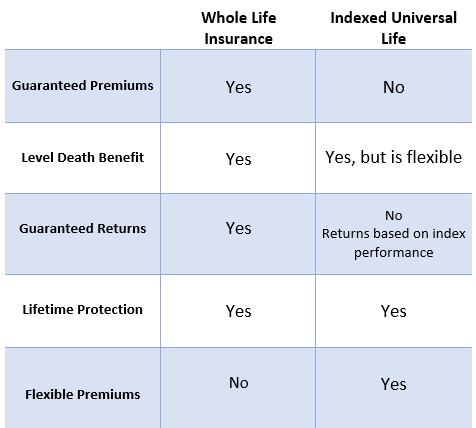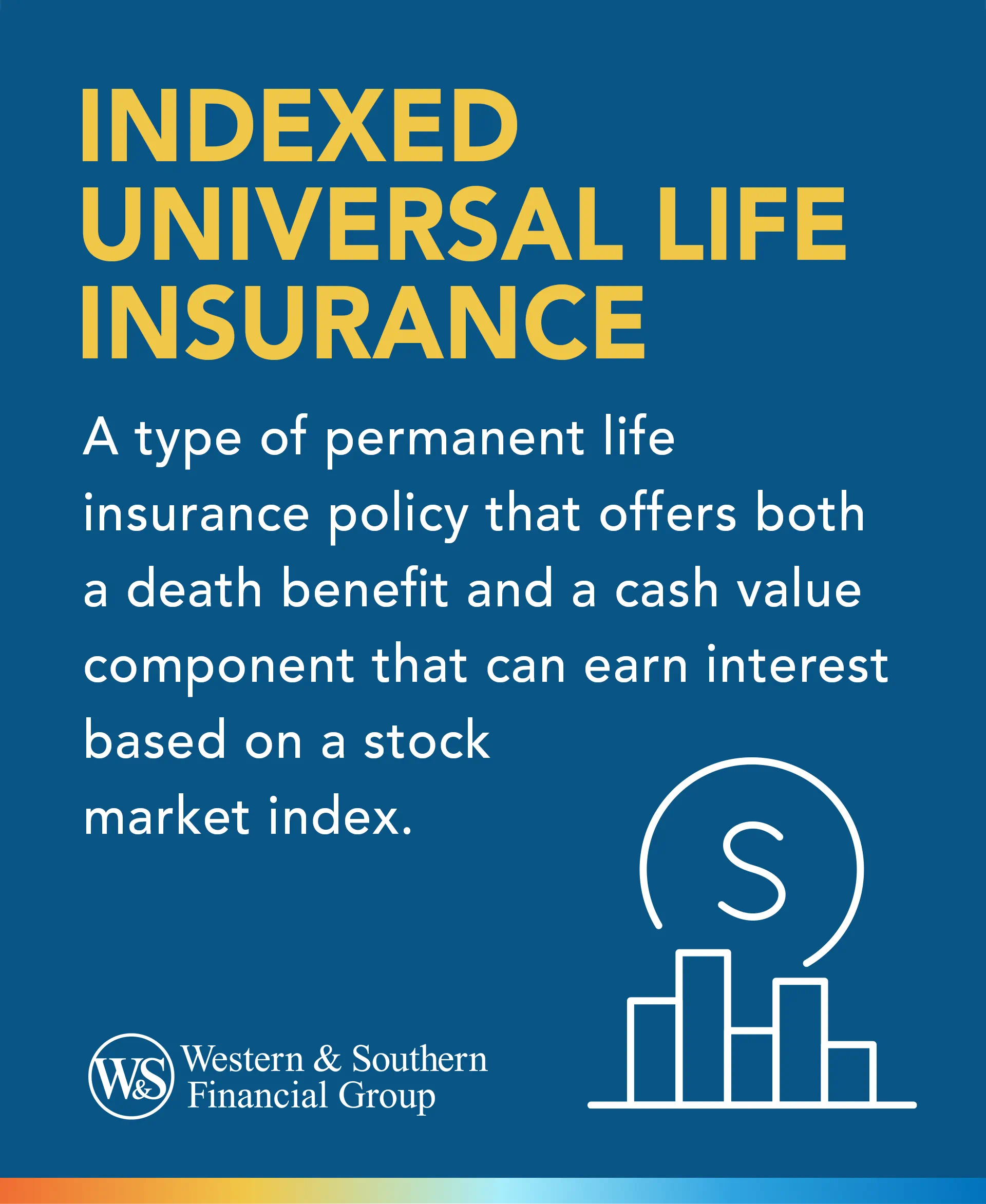All Categories
Featured
Table of Contents
Do they contrast the IUL to something like the Vanguard Overall Supply Market Fund Admiral Shares with no lots, a cost ratio (ER) of 5 basis factors, a turn over proportion of 4.3%, and an outstanding tax-efficient record of distributions? No, they compare it to some dreadful proactively handled fund with an 8% tons, a 2% EMERGENCY ROOM, an 80% turnover ratio, and an awful record of temporary resources gain distributions.
Mutual funds commonly make annual taxable distributions to fund proprietors, also when the worth of their fund has decreased in worth. Mutual funds not just call for income coverage (and the resulting yearly taxes) when the mutual fund is going up in value, yet can likewise enforce revenue tax obligations in a year when the fund has actually gone down in value.
That's not just how mutual funds function. You can tax-manage the fund, collecting losses and gains in order to decrease taxed distributions to the financiers, but that isn't somehow mosting likely to transform the reported return of the fund. Just Bernie Madoff types can do that. IULs stay clear of myriad tax obligation traps. The possession of common funds might call for the mutual fund proprietor to pay projected tax obligations.

IULs are very easy to position to ensure that, at the owner's fatality, the recipient is not subject to either income or estate taxes. The same tax decrease techniques do not function virtually also with common funds. There are many, usually expensive, tax obligation catches linked with the timed buying and marketing of common fund shares, catches that do not put on indexed life Insurance policy.
Possibilities aren't really high that you're mosting likely to go through the AMT as a result of your shared fund distributions if you aren't without them. The rest of this one is half-truths at ideal. While it is real that there is no earnings tax obligation due to your beneficiaries when they acquire the proceeds of your IUL plan, it is also real that there is no earnings tax due to your heirs when they inherit a shared fund in a taxable account from you.
Universal Life Quotes Online
The government estate tax exemption limit is over $10 Million for a couple, and growing each year with inflation. It's a non-issue for the substantial majority of medical professionals, a lot less the rest of America. There are far better means to avoid estate tax issues than acquiring financial investments with reduced returns. Mutual funds might create revenue taxation of Social Safety and security advantages.

The development within the IUL is tax-deferred and might be taken as free of tax revenue by means of car loans. The policy proprietor (vs. the mutual fund supervisor) is in control of his/her reportable income, hence enabling them to lower or perhaps remove the taxation of their Social Safety advantages. This one is excellent.
Below's one more very little concern. It holds true if you acquire a shared fund for say $10 per share simply before the circulation date, and it disperses a $0.50 circulation, you are then going to owe tax obligations (possibly 7-10 cents per share) although that you have not yet had any type of gains.
In the end, it's really about the after-tax return, not just how much you pay in tax obligations. You're additionally possibly going to have even more cash after paying those taxes. The record-keeping demands for having common funds are dramatically more intricate.
With an IUL, one's records are maintained by the insurance coverage business, copies of annual statements are mailed to the proprietor, and distributions (if any type of) are completed and reported at year end. This is additionally type of silly. Certainly you need to keep your tax obligation records in situation of an audit.
Iul Life Insurance Cost
Hardly a factor to buy life insurance coverage. Shared funds are typically part of a decedent's probated estate.
On top of that, they undergo the hold-ups and costs of probate. The proceeds of the IUL policy, on the other hand, is constantly a non-probate circulation that passes outside of probate straight to one's called beneficiaries, and is consequently exempt to one's posthumous lenders, undesirable public disclosure, or comparable delays and prices.
Medicaid disqualification and life time income. An IUL can offer their proprietors with a stream of income for their entire lifetime, regardless of how long they live.

This is advantageous when arranging one's affairs, and converting properties to earnings prior to an assisted living facility confinement. Shared funds can not be converted in a comparable way, and are generally taken into consideration countable Medicaid properties. This is another dumb one supporting that poor individuals (you recognize, the ones that need Medicaid, a federal government program for the inadequate, to spend for their nursing home) need to utilize IUL as opposed to common funds.
Allstate Futuregrowth Iul
And life insurance policy looks terrible when compared rather against a retirement account. Second, people who have money to purchase IUL above and beyond their pension are mosting likely to have to be terrible at handling money in order to ever before get approved for Medicaid to pay for their nursing home prices.
Persistent and terminal illness cyclist. All policies will enable an owner's easy access to cash from their policy, commonly forgoing any kind of abandonment charges when such people experience a serious illness, need at-home treatment, or end up being constrained to an assisted living facility. Mutual funds do not provide a similar waiver when contingent deferred sales costs still relate to a common fund account whose owner requires to market some shares to fund the costs of such a remain.
Universal Life Insurance Expires When
You obtain to pay even more for that benefit (cyclist) with an insurance plan. What a good deal! Indexed global life insurance coverage offers survivor benefit to the recipients of the IUL proprietors, and neither the proprietor nor the beneficiary can ever before lose cash because of a down market. Shared funds offer no such assurances or survivor benefit of any kind.
Currently, ask yourself, do you actually require or desire a death benefit? I absolutely don't need one after I reach monetary self-reliance. Do I want one? I expect if it were low-cost sufficient. Naturally, it isn't cheap. Usually, a buyer of life insurance policy pays for real cost of the life insurance policy advantage, plus the expenses of the policy, plus the earnings of the insurer.
Term Life Insurance Vs Universal
I'm not totally sure why Mr. Morais included the whole "you can't shed cash" again below as it was covered quite well in # 1. He just intended to repeat the very best selling factor for these points I expect. Once more, you do not shed nominal dollars, but you can lose real dollars, in addition to face significant chance cost because of reduced returns.

An indexed global life insurance policy plan proprietor might trade their plan for a completely different policy without activating income taxes. A common fund proprietor can stagnate funds from one mutual fund business to one more without marketing his shares at the previous (therefore triggering a taxed occasion), and redeeming new shares at the latter, usually subject to sales fees at both.
While it holds true that you can trade one insurance plan for an additional, the reason that people do this is that the first one is such an awful plan that also after acquiring a new one and undergoing the very early, adverse return years, you'll still appear ahead. If they were sold the right policy the initial time, they should not have any kind of desire to ever before trade it and go with the very early, unfavorable return years again.
Latest Posts
Universal Life Insurance Company Ratings
Why Indexed Universal Life Insurance Might Be New 401k
Eiul Life Insurance